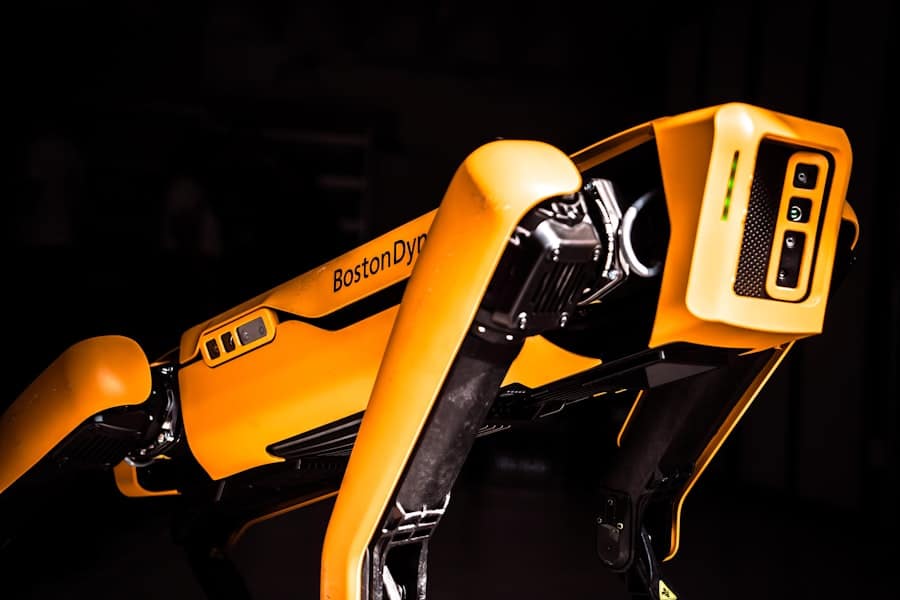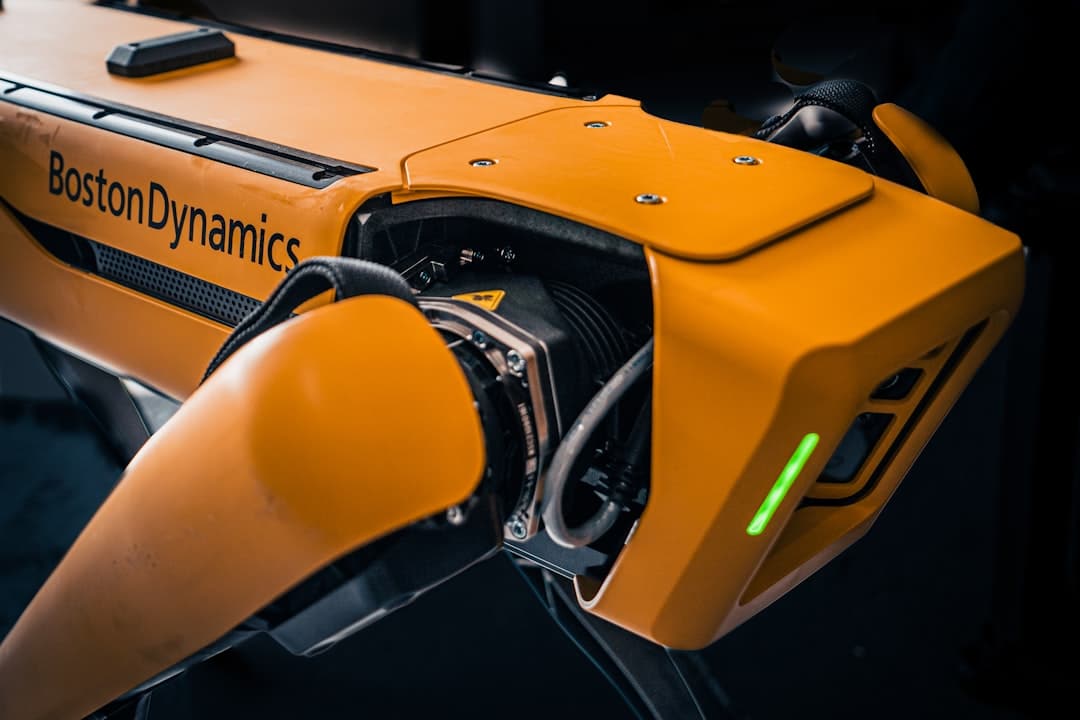Predictive technology refers to the use of algorithms and data analytics to forecast future events or behaviors based on historical data. This technology leverages vast amounts of information, including patterns, trends, and correlations, to make informed predictions. In various fields, from finance to healthcare, predictive technology has transformed decision-making processes by providing insights that were previously unattainable.
By employing machine learning and artificial intelligence, predictive models can analyze complex datasets to identify potential outcomes, enabling organizations to act proactively rather than reactively. In the realm of mental health, predictive technology is gaining traction as a powerful tool for understanding and addressing psychological conditions. By analyzing data from various sources—such as electronic health records, social media activity, and wearable devices—researchers and clinicians can identify risk factors associated with mental health issues.
This approach not only enhances the understanding of mental health disorders but also facilitates the development of targeted interventions. As the field continues to evolve, the integration of predictive technology into mental health care promises to revolutionize how practitioners approach diagnosis, treatment, and patient support.
Key Takeaways
- Predictive technology uses data and algorithms to forecast future outcomes or behaviors.
- Predictive technology in mental health can help identify individuals at risk for mental health issues.
- Early intervention and prevention using predictive technology can help reduce the severity of mental health issues.
- Predictive technology can aid in crisis management and response by identifying individuals in need of immediate help.
- Ethical considerations in predictive tech include privacy concerns and potential misuse of data in mental health settings.
- Personalized treatment plans can be developed using predictive technology to cater to individual needs.
- Support and resources for mental health can be enhanced through the use of predictive technology.
- The future of predictive tech in mental health holds potential for improved early intervention and personalized care.
Predictive Technology in Mental Health
The application of predictive technology in mental health is multifaceted, encompassing a range of tools and methodologies designed to enhance patient care. One prominent example is the use of machine learning algorithms to analyze patient data for early signs of mental health disorders. For instance, researchers have developed models that can predict the onset of depression by examining patterns in patients’ speech and writing.
These models can detect subtle changes in language use or emotional tone that may indicate a decline in mental well-being, allowing for timely intervention. Moreover, predictive technology can also be employed to assess the effectiveness of various treatment modalities. By analyzing outcomes from different therapeutic approaches, clinicians can identify which interventions are most likely to succeed for specific patient profiles.
This data-driven approach not only improves treatment efficacy but also empowers patients by providing them with personalized care options tailored to their unique needs. As a result, predictive technology is becoming an integral part of mental health care, offering insights that enhance both diagnosis and treatment.
Early Intervention and Prevention

One of the most significant advantages of predictive technology in mental health is its potential for early intervention and prevention. By identifying individuals at risk for developing mental health disorders before symptoms manifest, healthcare providers can implement preventive measures that may mitigate the severity of these conditions. For example, predictive models can analyze demographic data, family history, and lifestyle factors to flag individuals who may be at higher risk for anxiety or depression.
This proactive approach allows clinicians to engage with at-risk patients through counseling, education, or lifestyle modifications. Additionally, early intervention strategies can be particularly beneficial in educational settings. Schools are increasingly utilizing predictive analytics to monitor students’ mental health and academic performance.
By analyzing attendance records, grades, and behavioral patterns, educators can identify students who may be struggling emotionally or psychologically. Interventions such as counseling services or peer support programs can then be introduced to address these issues before they escalate into more serious mental health problems. This shift towards prevention not only supports individual students but also fosters a healthier school environment overall.
Crisis Management and Response
In times of crisis, predictive technology can play a crucial role in managing and responding to mental health emergencies. For instance, during a mental health crisis—such as a suicidal episode—timely intervention is critical. Predictive models can analyze real-time data from various sources, including emergency calls, social media posts, and wearable devices, to identify individuals who may be in immediate danger.
By flagging these individuals for urgent care, mental health professionals can mobilize resources quickly and effectively. Moreover, predictive technology can enhance crisis response strategies by providing insights into patterns of crisis occurrences within specific populations or geographic areas. For example, data analysis may reveal that certain communities experience higher rates of mental health crises during particular times of the year or following specific events.
Understanding these trends allows mental health organizations to allocate resources more efficiently and develop targeted outreach programs aimed at high-risk populations. This proactive approach not only improves crisis management but also fosters a sense of community support during challenging times.
Ethical Considerations in Predictive Tech
As with any emerging technology, the use of predictive analytics in mental health raises important ethical considerations that must be addressed. One primary concern is the potential for bias in predictive algorithms. If the data used to train these models is not representative of diverse populations, there is a risk that certain groups may be unfairly targeted or overlooked in the prediction process.
This could lead to disparities in access to care or misdiagnosis for marginalized communities. Therefore, it is essential for developers and researchers to ensure that their datasets are inclusive and reflect the diversity of the population they aim to serve. Another ethical consideration involves patient privacy and data security.
The collection and analysis of sensitive mental health data necessitate stringent safeguards to protect individuals’ confidentiality. Patients must be informed about how their data will be used and have the option to opt out if they choose. Additionally, organizations must implement robust security measures to prevent unauthorized access to personal information.
Striking a balance between leveraging data for predictive insights and safeguarding patient rights is crucial for maintaining trust in mental health care systems.
Personalized Treatment Plans

The integration of predictive technology into mental health care paves the way for the development of personalized treatment plans tailored to individual patients’ needs. By analyzing a patient’s unique profile—encompassing genetic factors, lifestyle choices, and previous treatment responses—clinicians can create targeted interventions that are more likely to yield positive outcomes. For instance, if a predictive model indicates that a patient has a higher likelihood of responding well to cognitive-behavioral therapy (CBT) based on their history and characteristics, clinicians can prioritize this approach in their treatment plan.
Furthermore, personalized treatment plans can also adapt over time based on ongoing assessments and feedback from patients. Predictive technology enables continuous monitoring of patients’ progress through various means such as mobile applications or telehealth platforms. If a patient’s condition changes or if they experience side effects from medication, clinicians can quickly adjust their treatment strategy based on real-time data.
This dynamic approach not only enhances treatment efficacy but also empowers patients by involving them in their care decisions.
Support and Resources
The successful implementation of predictive technology in mental health relies on adequate support systems and resources for both practitioners and patients. Mental health professionals must receive training on how to interpret predictive analytics effectively and integrate these insights into their clinical practice. This includes understanding the limitations of predictive models and recognizing when additional assessments or interventions may be necessary.
For patients, access to resources that explain how predictive technology works and its benefits is essential for fostering trust and engagement in their care process. Educational materials should be made available through various channels—such as healthcare facilities, community organizations, and online platforms—to ensure that individuals understand how their data will be used and how it can enhance their treatment experience. Additionally, support networks that connect patients with peers who have experienced similar challenges can provide valuable encouragement and motivation throughout their mental health journey.
Future of Predictive Tech in Mental Health
Looking ahead, the future of predictive technology in mental health holds immense promise as advancements continue to unfold. As artificial intelligence and machine learning techniques evolve, we can expect even more sophisticated models capable of predicting complex mental health outcomes with greater accuracy. The integration of diverse data sources—ranging from genetic information to environmental factors—will further enhance our understanding of mental health disorders and their underlying causes.
Moreover, as society becomes increasingly aware of mental health issues and advocates for destigmatization, there will likely be greater acceptance of predictive technologies within clinical practice. This shift could lead to more widespread adoption of data-driven approaches in mental health care settings across the globe. Ultimately, the continued evolution of predictive technology has the potential to transform how we understand, treat, and support individuals facing mental health challenges, paving the way for a more proactive and personalized approach to mental well-being.
By leveraging data analytics and machine learning, these technologies can anticipate potential crises and provide timely interventions. A related article that delves into the technological advancements in education, which can also be applied to mental health training, is Best Software to Create Training Videos. This article explores various software options that can be used to create effective training materials, which are crucial for educating mental health professionals on the latest predictive technologies and intervention strategies.
FAQs
What is predictive technology in the context of mental health crises?
Predictive technology in the context of mental health crises refers to the use of data analysis and machine learning algorithms to predict and prevent mental health crises before they occur. This technology can analyze various data points such as social media activity, sleep patterns, and physical activity to identify potential warning signs of a mental health crisis.
How does predictive technology help in managing mental health crises?
Predictive technology helps in managing mental health crises by identifying individuals who may be at risk of experiencing a crisis and providing early intervention and support. By analyzing patterns and trends in an individual’s behavior and mental health indicators, predictive technology can alert healthcare providers and caregivers to potential risks, allowing for timely intervention and support.
What are the potential benefits of using predictive technology in managing mental health crises?
Some potential benefits of using predictive technology in managing mental health crises include early intervention, improved access to mental health support, personalized care, and reduced stigma. By identifying individuals at risk of a mental health crisis, predictive technology can help prevent the escalation of symptoms and improve overall outcomes for individuals with mental health conditions.
What are the potential limitations or challenges of using predictive technology in managing mental health crises?
Some potential limitations or challenges of using predictive technology in managing mental health crises include privacy concerns, data security issues, and the potential for algorithmic bias. Additionally, there may be challenges in accurately predicting mental health crises, as individual experiences and responses to mental health conditions can vary widely.
How is predictive technology being integrated into mental health care systems?
Predictive technology is being integrated into mental health care systems through the development of digital health platforms, mobile applications, and wearable devices that can collect and analyze data related to an individual’s mental health. Healthcare providers and organizations are also exploring the use of predictive technology to improve care coordination and provide more personalized and proactive mental health support.

